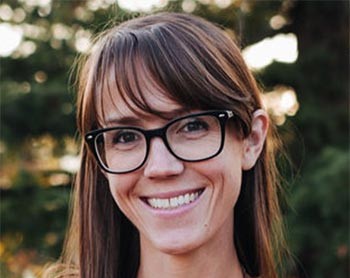
The Women in Power System Transformation initiative, funded by the United States Agency for International Development (USAID) and implemented through the National Renewable Energy Laboratory (NREL) and the Global Power System Transformation Consortium (G-PST), is addressing educational and professional barriers to women’s entry and advancement in power system operation organizations.
NREL reveals that women are underrepresented in leadership roles and technical roles in power system operation organizations. This is a common problem across many historically male-dominated areas. Despite growing evidence that women have diverse skills, experiences and perspectives that can improve organizational performance, this disparity persists.
“As countries transform their power systems by bringing significantly larger shares of renewables onto the grid, there is a risk many women will be left out of the clean energy transition, resulting in women benefitting less, socially and economically, from the opportunities offered by power system decarbonization,” says Sadie Cox, the initiative’s lead at NREL.
The Department of Energy officially launched Women in Power System Transformation at the 2021 United Nations Climate Change Conference. This activity contributes to USAID’s overall goal of increasing gender equality and women’s empowerment and complements USAID’s broader Engendering Industries programming, which aims to increase economic opportunities for women in traditionally male-dominated sectors around the world, including the energy, water, infrastructure and technology sectors.
“We worked closely with USAID’s Engendering Industries program and the G-PST Consortium to first understand what challenges and opportunities existed for women in the power sector,” Cox adds. “We then used those insights to form the foundation for this initiative’s activities.”
One of the G-PST Consortium’s core team partners, Imperial College London, is leading development of a gender-informed university-level engineering training curriculum for Women in Power System Transformation. The curriculum will explore stories of women’s journeys to leadership in power system operations, gender equality and empowerment topics, and cutting-edge power system technical topics aligned with the G-PST Consortium’s teaching agenda. In the coming months, the Women in Power System Transformation course content and other materials will be available for free to students and university professors around world.
This initiative also includes professional fellowships, university internships, and professional fellowships for women from underrepresented groups in developing nations. Students interns will work closely alongside researchers at NREL to improve their technical skills. The internship will prepare students to return to their home countries with their analysis, research, knowledge, and expertise after the internship ends. The Women in Power System Transformation university internship program is now open.
Women in Power System Transformation is aware of the need for removing barriers in workforce pipelines and will offer professional training opportunities to women practitioners through its professional fellowship programme. G-PST Consortium partners will host fellowship participants. This will give them firsthand experience in managing and operating high-renewable electricity grids.
Women in Power System Transformation will strengthen academic and workforce training initiatives by offering comprehensive training in negotiation, gender empowerment, and leadership to students, professionals, and institutions that host them. This training will be offered in partnership with Johns Hopkins University’s Self-Empowerment and Equity for Change Initiative at Johns Hopkins University (JHU), which builds on previous JHU work to address wider issues women face at work.
“I hope that the tools we provide through this initiative will shift the power system operators field to be more amenable to women so we can unleash the full potential of this segment of the workforce,” states Sarah Lawson, one of the initiative’s agreement officer representatives at USAID. “We need the full participation of women to truly take on the enormous challenge of shifting the world’s power supply to clean energy sources as soon as possible to counter the threat of climate change.”
